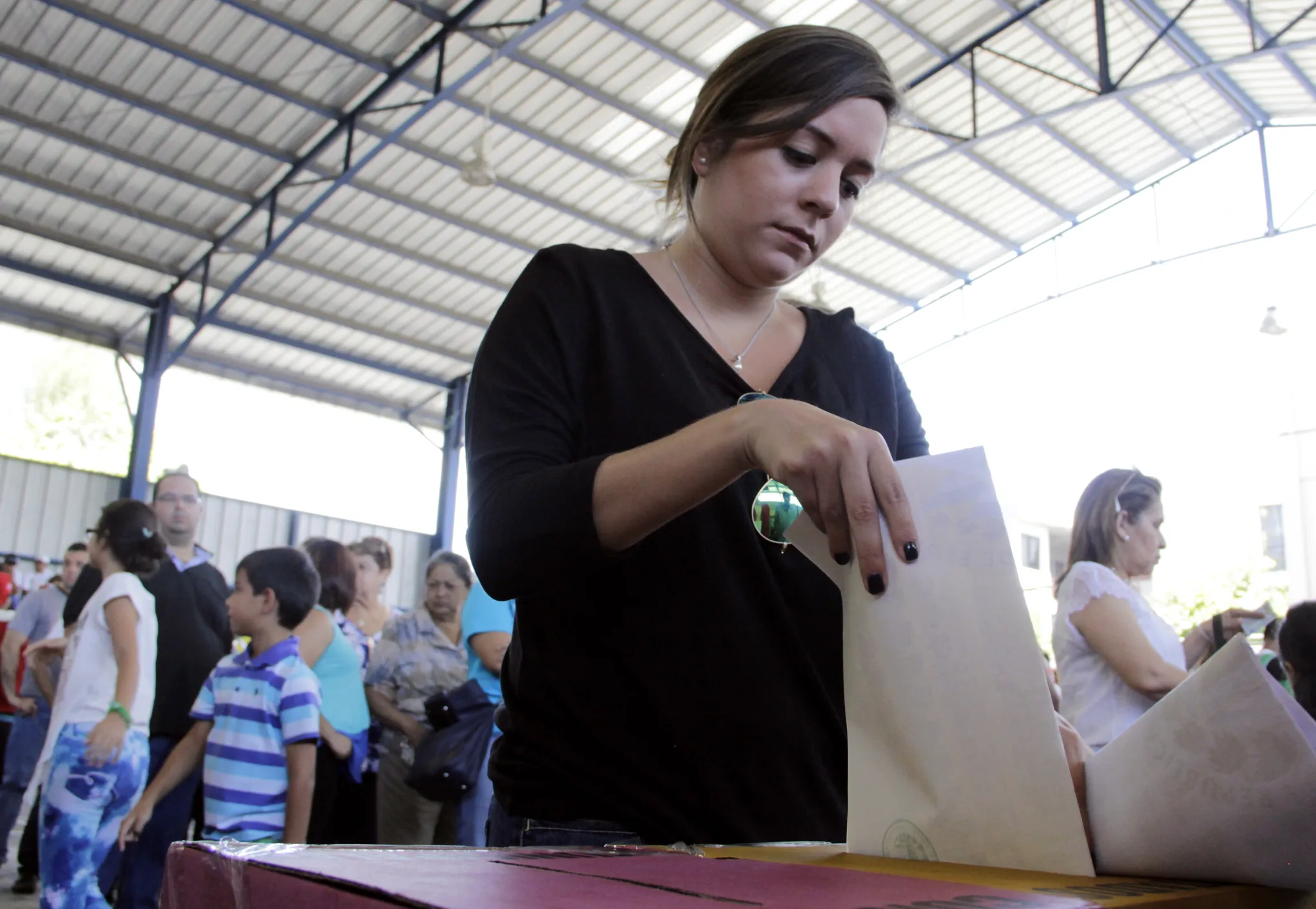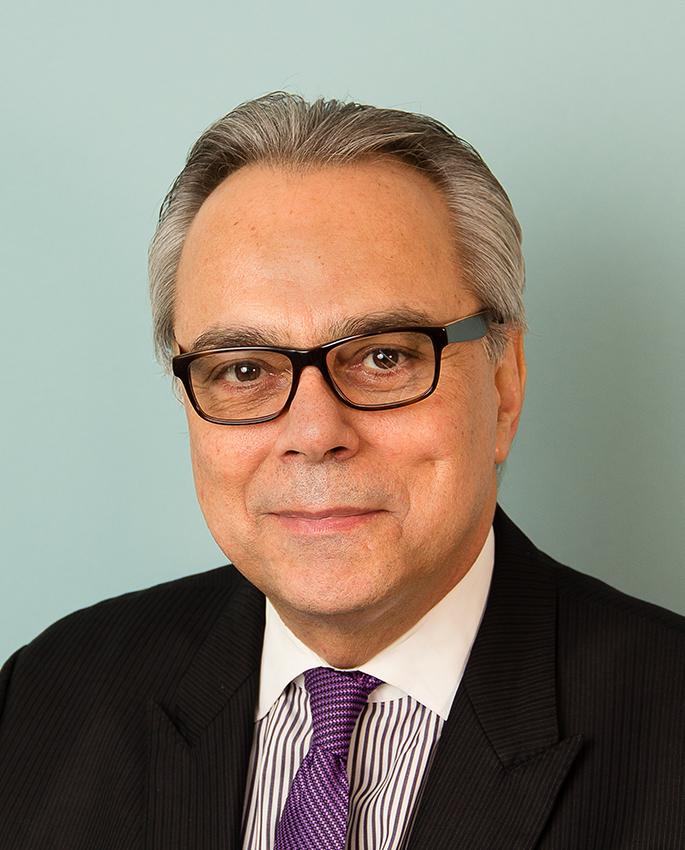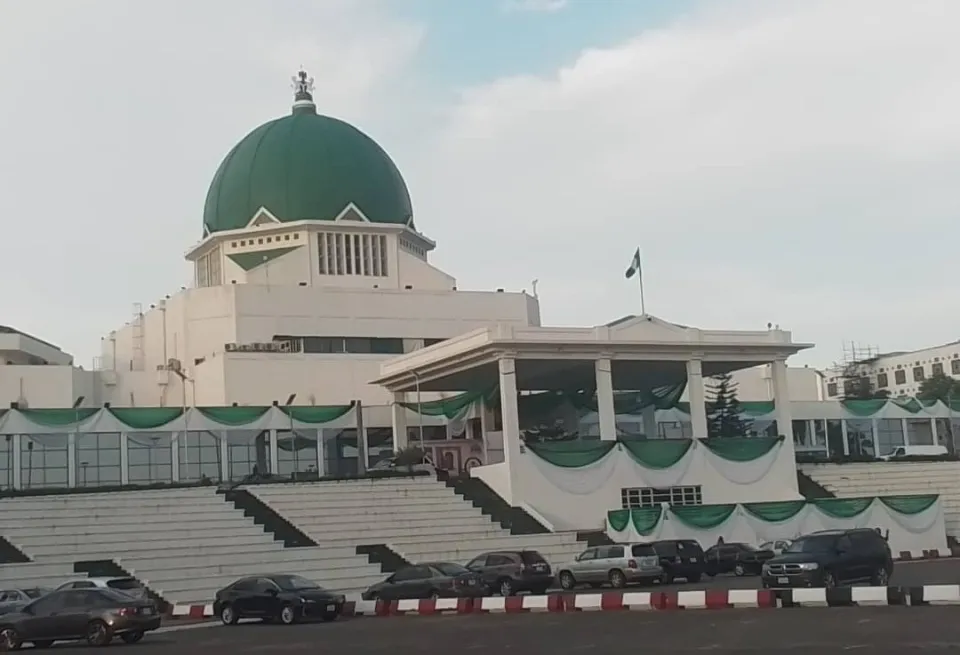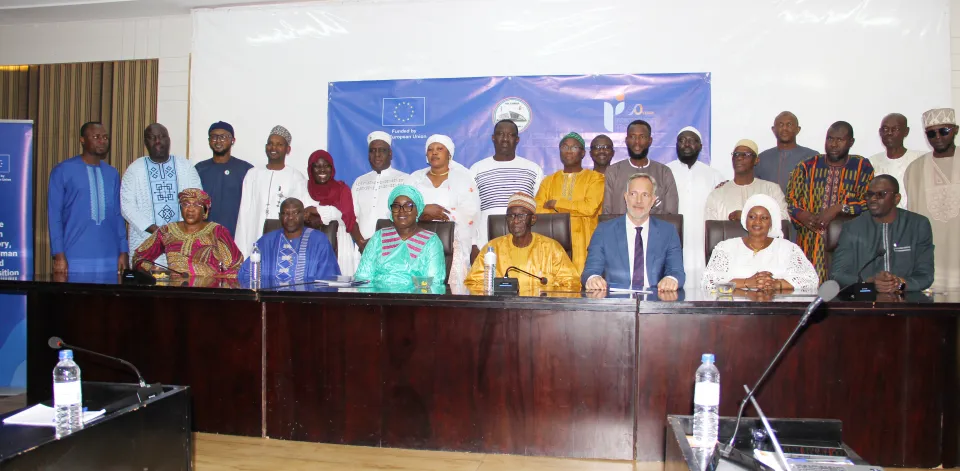
Disclaimer: Views expressed in this commentary are those of the staff member. This commentary is independent of specific national or political interests. Views expressed do not necessarily represent the institutional position of International IDEA, its Board of Advisers or its Council of Member States.
Este articulo se encuentra disponible en Castellano.
According to Chinese astrology Earth Dog will govern 2018. All indications suggest that it will be an intense, turbulent year with high levels of uncertainty, more with respect to politics than the economy.
The economy will be the good news. The World Bank projects synchronized growth of the global economy, estimated at 3.1%. The international agenda, by way of contrast, is replete with relevant events that could aggravate the current “geopolitical recession” and complicate the sound economic situation.
Of special note are the almost certain re-election of Vladimir Putin in Russia; the urgent need for Angela Merkel to put together a governing coalition in Germany; the enigma of the Italian elections; the progress in the complex and decisive Brexit negotiations; the mounting nuclear threats by Kim Jong-un from North Korea; the tensions between Iran and Saudi Arabia, the United States, and Israel; the evolution of the conflicts in Afghanistan, Syria, and Yemen; the consolidation of the world leadership of Xi Jinping and China; and a long etcetera. And all of this without discarding the possibility of some “black swan” event.
It is turning out that not only will it be hard to predict what will happen in 2018; in addition, in the view of the Eurasia Group, “2018 presents the scenario with the greatest geopolitical risks since 1998.”
During this intense and turbulent year, Latin America will experience a significant electoral marathon with six presidential elections, which are part of the super-cycle of elections in Latin America, that is, 14 presidential elections from November 2017 to November 2019, two of which (Chile and Honduras) already took place late last year. Costa Rica is first this year, on February 4, and the 2018 elections should conclude with Venezuela late in the year (though it’s still uncertain). Between the two Costa Rican and Venezuelan elections, elections are to be held in Paraguay, April 22; Colombia, May 27; Mexico, July 1; and Brazil, on October 7. Accordingly, in a matter of just six months the first (Brazil), second (Mexico), and fourth (Colombia) largest economies of the region will choose new presidents; this simultaneous changeover happens only once every 12 years. To that we should add the Ecuadorian referendum (February), the legislative elections in El Salvador (March), the election in Cuba of legislators for the new National Assembly (March) who will elect (in April) the successor to Raúl Castro as the next president of Cuba, and the legislative elections in the United States, a veritable plebiscite on the first two years of the administration of Donald Trump and his political future.
The Latin American context in which these elections will take place is complex with any number of challenges. Mounting social conflicts along with high levels of citizen insecurity and serious corruption scandals will continue to pose problems of governability in several countries of the region. As regards the economy, while growth is projected to be better than last year, it will continue to be weak (2.2% according to UN Economic Commission for Latin America and the Caribbean: ECLAC). This figure is insufficient for answering the growing demands of the middle class, avoiding an increase in poverty and inequality, and ensuring that quality jobs are created.
Electoral agenda
Costa Rica will lead off on February 4 with a high likelihood that a second round will be needed to choose the next president. The attrition of the leading parties allowed new candidates to emerge, such as Juan Diego Castro of the Partido de Integración Nacional (PIN), who, with a discourse critical of the traditional political forces, enjoys a narrow lead in the polls. He is followed by Antonio Álvarez Desanti of the Partido de Liberación Nacional (PLN) and Rodolfo Piza of the Partido de la Unidad Social Cristiana (PUSC). The scant difference separating the three leading candidates and the large number of undecided voters foreshadow an election too close to call.
Paraguay will go to the polls on April 22. The Partido Liberal Radical Auténtico (PLRA) and the leftist Frente Guasú, with the Efraín Alegre of the PLRA as their presidential candidate, have formed an opposition coalition called Gran Alianza Nacional Renovadora (GANAR) to attempt to dislodge the Partido Colorado (ANR), led by Mario Abdo Benítez, from the presidency.
Colombia will first hold legislative elections (March 11) and then, on May 27, presidential elections. A second round may be needed to determine who will be the next president. These elections are characterized not only by a high degree of fragmentation and independent candidates but also by major polarization between the right and the left and between supporters and critics of the Peace Accords with the FARC. Recently the main coalitions aspiring to the presidential palace (Casa de Nariño) were defined in the following terms: the conservative coalition led by former presidents Uribe and Pastrana, whose candidate will be Iván Duque or Marta Lucía Ramírez, and a second coalition, centrist, led by Sergio Fajardo (Coalición Colombia). There are also negotiations in place to form a third coalition, more to the left, in which there is no clear candidate yet, with the names mentioned including Gustavo Petro (Colombia Humana) and Clara López (ASI). To these coalitions must be added the candidacy of the former Chief Negotiator (from the Government side) of the Peace Accord with the FARC, Humberto de la Calle (of Partido Liberal), the former Vice President Germán Vargas Lleras – of the center-right – and Rodrigo Londoño “Timochenko” for the FARC, which recently completed the transformation from guerrilla army to political party.
Mexico votes on July 1. These elections are decided in the first round, as there is no provision for a second round. Andrés Manuel López Obrador, the leader of Movimiento Regeneración Nacional (MORENA) and a candidate who was defeated in 2006 and 2012, heads up the coalition bringing together the anti-PRI and anti-traditional political class coalition, and for the time being is ahead in the polls.
In the struggle to channel the anti-PRI vote, López Obrador is clashing with the coalition (Por México al Frente) that has been formed by the PRD – center-left – and the PAN –center-right; Ricardo Anaya (of the PAN) is its presidential candidate.
The PRI seeks to hold on to the presidency with José Antonio Meade (independent, not affiliated with the PRI, a technocrat). It is counting on capturing the vote of the center-right and the middle classes who fear a leap into the unknown and the danger of “Venezuelanization” (in the event of a victory for López Obrador) or a very mixed government – and theoretically hardly stable – as could be expected of the PAN-PRD-MC coalition.
Brazil, On October 7 Brazilians will vote, with the possibility of the presidency being defined in second-round elections, which if needed would be held October 28. The election process and outcome largely depend on the judicial future of former President Lula da Silva; he’s leading in all the polls, but if his conviction is upheld unanimously on appeal (the judgment will be handed down this January 24 by the Regional Court of Porto Alegre) he would be disqualified from aspiring to elective office. Without Lula as a candidate, the electoral competition will be completely different, much more open-ended and uncertain.
The other candidates who already expressed their interest in reaching the Planalto presidential palace in Brasilia are the extreme rightwing populist Jair Bolsonaro (second in the polls), the environmentalist and leftist candidate Marina Silva, Sao Paulo Governor Geraldo Alckmin (PSDB), and current finance minister Henrique Meirelles (PMDB).
Venezuela, As for Venezuela’s presidential election, for now everything is unknown, including the date. Nor is it clear whether Nicolás Maduro will run for re-election, or whether the opposition – currently weakened and divided – will prefer to abstain so as not to legitimize the regime – if the minimum guarantees are not in place.
And we should pay close attention to the dialogue that is unfolding in the Dominican Republic to see if it leads to some agreement between the government and the opposition that facilitates holding presidential elections with proper guarantees so as to find a peaceful and electoral solution to the current serious crisis.
Final comment
First, this super-cycle of elections is coming at a time when, according to the Latin American Public Opinion Project (LAPOP), support for democracy in Latin America has been experiencing a sharp decline, accompanied by greater dissatisfaction with democracy, a major drop in support for the governments, and low levels of confidence in elections and in the leading institutions of representative democracy.
Second, this set of elections will prove crucial for assessing the quality of democracy and the integrity of electoral processes in Latin America.
Third, in the vast majority of cases these elections are characterized by a high degree of polarization and uncertainty.
Fourth, it is not clear how strong the outsider candidates and populist trends (very much present in several parts of the world today) will be in these six presidential elections.
And fifth, the outcomes of the 2018 electoral marathon will be key for defining the trends, direction, and intensity of political change in Latin America in coming years. Will the region suffer a populist relapse? Will the moderate left win the strategic elections in Colombia, Mexico, and Brazil? Or will the middle classes (more pragmatic than ideological and mostly situated in the political center) decide to go with moderate center-right candidates, thereby consolidating the ideological turn that the region began in this direction with the election of Mauricio Macri and Pedro Pablo Kuczynski (in Argentina in 2015 and in Peru in 2016, respectively), and which was recently reinforced by the election of Sebastián Piñera in Chile? This is what is at stake in the intense and enthralling 2018 presidential election marathon.
This article was originally published in Spanish in La Nación. The English translation was undertaken by International IDEA.




